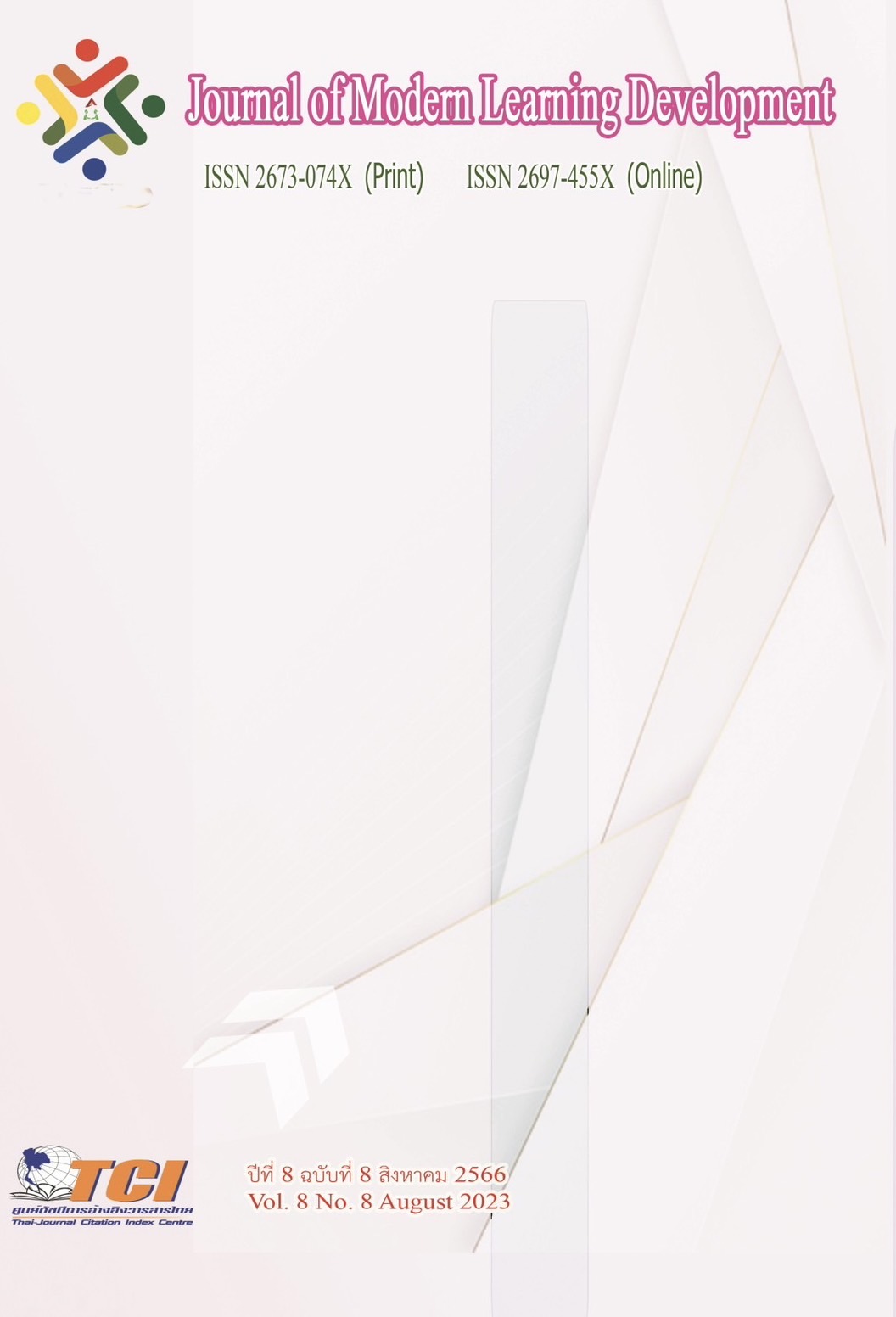Buddhist Ecology and the Creation of Well-Being According to the Buddhist Way
Main Article Content
Abstract
This academic article aims to study the Buddhist Niwet and the creation of well-being according to the Buddhist way. It is a sustainable ecosystem development. Preserving nature, environment, not destroying local traditions towards nature. For sustainable development to the community and nature and creating a balance between man and nature is to create true happiness both physically and physically. mind and intelligence Creating a balance between humans and nature with a balance in various dimensions, such as a balance between physical and mental development. balance between economy society and environment Managing natural resources therefore creates happiness that meets their own needs. community and society from the relationship between man and nature It is the source of happiness both physically and mentally. By using wisdom together to consider resources in the community. To be a real development that affects the happiness of individuals, communities and the nation.
Article Details
References
พุทธทาสภิกขุ. (2533). พุทธศาสนิกกับการอนุรักษ์ธรรมชาติ. กรุงเทพมหานคร: มูลนิธิโกมลคีม ทอง.
พุทธทาสภิกขุ. (2537). อิทัปปัจจยตา. (พิมพ์ครั้งที่ 3). กรุงเทพมหานคร: สำนักพิมพ์สุขภาพใจ.
พุทธทาสภิกขุ. (2542). คู่มือมนุษย์. กรุงเทพมหานคร: ธรรมสภา
พุทธทาสภิกขุ. (2535). พระสงฆ์กับการอนุรักษ์ป่า. ในนิตยสารเสขิยธรรม. 2 (9).
สมเด็จพระพุทธโฆษาจารย์ (ป. อ. ปยุตฺโต). (2543). พจนานุกรมพุทธศาสน์ ฉบับประมวลศัพท์. (พิมพ์ครั้งที่9), กรุงเทพมหานคร: โรงพิมพ์มหาจุฬาลงกรณราชวิทยาลัย
สมเด็จพระพุทธโฆษาจารย์ (ป. อ. ปยุตฺโต). (2551). ฟื้นสุขภาวะยามสังคมวิกฤต. (พิมพ์ครั้งที่ 3). นนทบุรี: บริษัทสหมิตรพริ้นติ้งแอนด์พับลิสชิ่ง จำกัด.
สมเด็จพระพุทธโฆษาจารย์ (ป. อ. ปยุตฺโต). (2550). สุขภาวะองค์รวมแนวพุทธ. กรุงเทพมหานคร: โรงพิมพ์อักษาสัมพันธ์ (1987) จำกัด.
สมเด็จพระพุทธโฆษาจารย์ (ป. อ. ปยุตฺโต). (2551). พจนานุกรมพุทธศาสน์ ฉบับประมวลศัพท์. (พิมพ์ครั้งที่ 11). กรุงเทพมหานคร: บริษัทเอส.อาร์.พริ้นติ้ง แมส โปรดักส์ จำกัด.
สมเด็จพระพุทธโฆษาจารย์ (ป. อ. ปยุตฺโต). (2550). การพัฒนาที่ยั่งยืน. (พิมพ์ครั้งที่ 6). กรุงเทพมหานคร: บริษัท สหธรรมิก จำกัด,
พระพยอม กัลป์ยาโณ. (ม.ป.พ). การสร้างคุณค่าให้ชีวิต และหลักปฏิบัติเพื่อเพิ่มคุณค่าชีวิต. กรุงเทพมหานคร: ธรรมสภา
พระอินถนอม ศรีหาตา. (2557). การสังเคราะห์กระบวนการการจัดการระบบนิเวศเพื่อการอนุรักษ์ป่าและสัตว์ป่าในภาคอีสาน. ปริญญาปรัชญาดุษฎีบัณฑิต. บัณฑิตวิทยาลัย: มหาวิทยาลัยสารคาม
ประพันธ์ ศุภษร. (2552). พระวินัยกับการอนุรักษ์สิ่งแวดล้อม. บัณฑิตวิทยาลัย: มหาวิทยาลัยมหาจุฬาลงกรณราชวิทยาลัย.
ลัดดา หงสุรพันธุ์, (2551). รูปแบบที่เหมาะสมของการอนุรักษ์ ฟื้นฟู และพัฒนาป่าวัฒนธรรมในวัดป่าภาคอีสานโดยชุมชนมีส่วนร่วม. ปริญญาปรัชญาดุษฎีบัณฑิต. บัณฑิตวิทยาลัย: มหาสารคาม.
มหาจุฬาลงกรณราชวิทยาลัย. (2539). พระไตรปิฎกภาษาไทย ฉบับมหาจุฬาลงกรณราชวิทยาลัย. กรุงเทพมหานคร : มหาจุฬาลงกรณราชวิทยาลัย.
สำนักงานคณะกรรมการสุขภาพแห่งชาติ. “สธ-สช. : ใบไม้ต้นเดียวกัน”. เอกสารประกอบการสัมมนา, หน้า 21.
UNESCO, (2581). Quality of Life : Orientation to Population Education. Bangkok : UNESCO.


